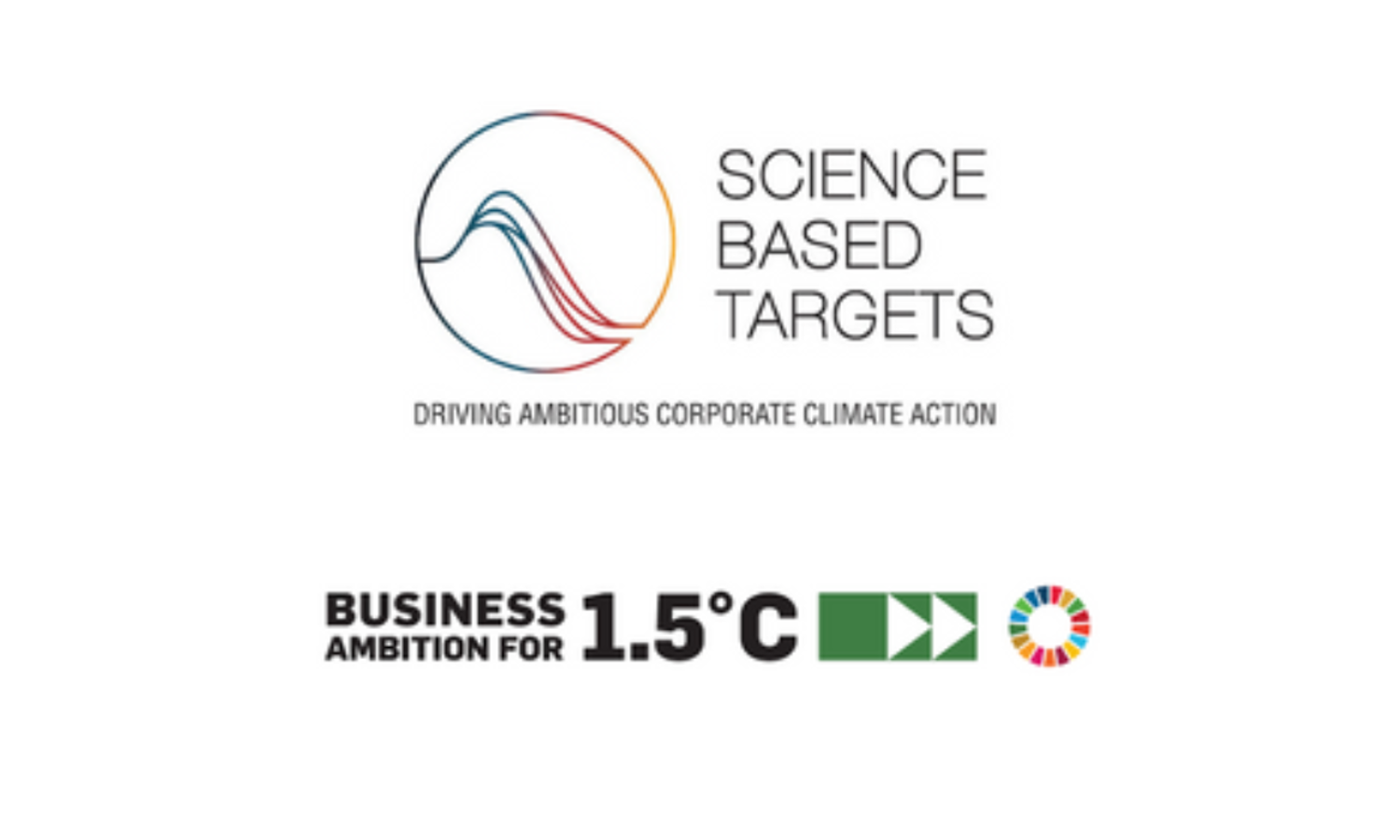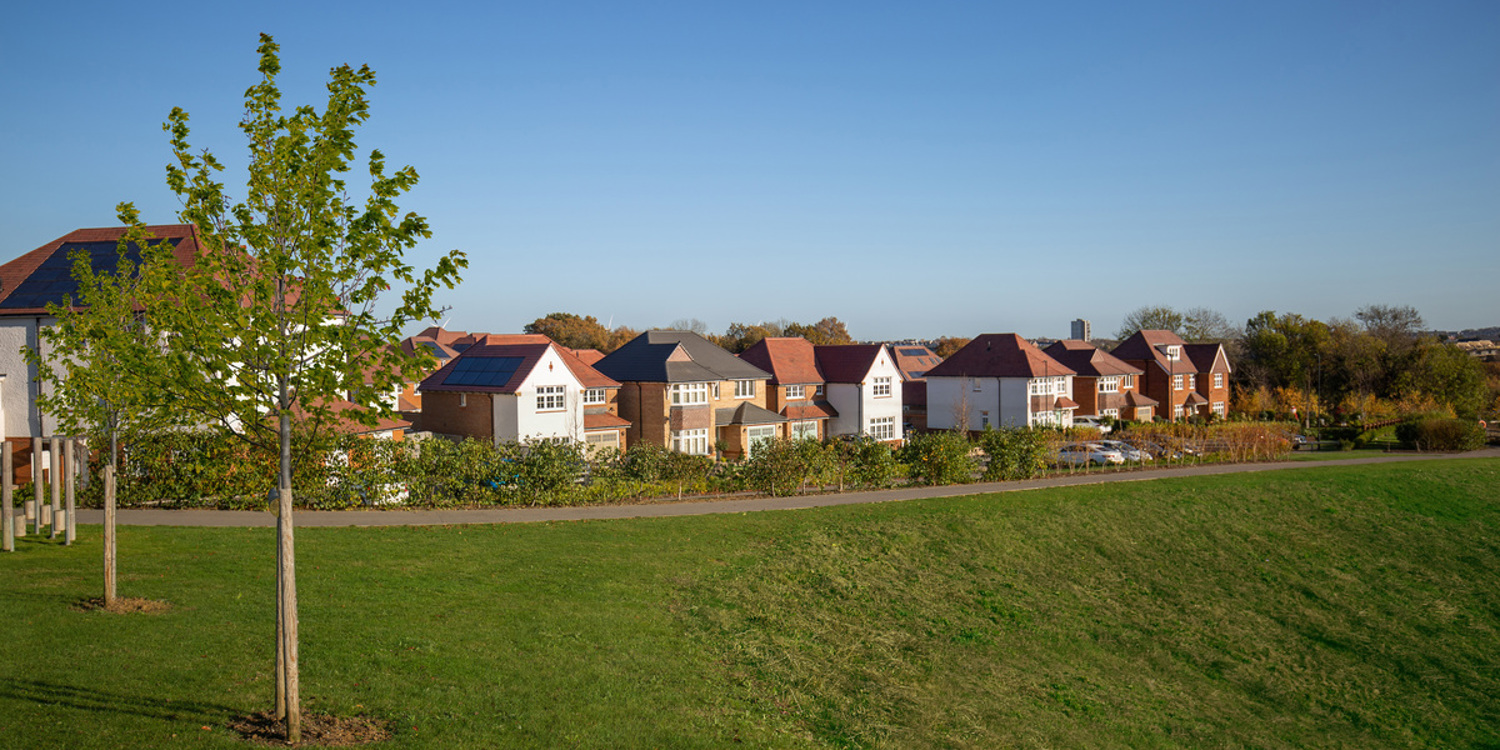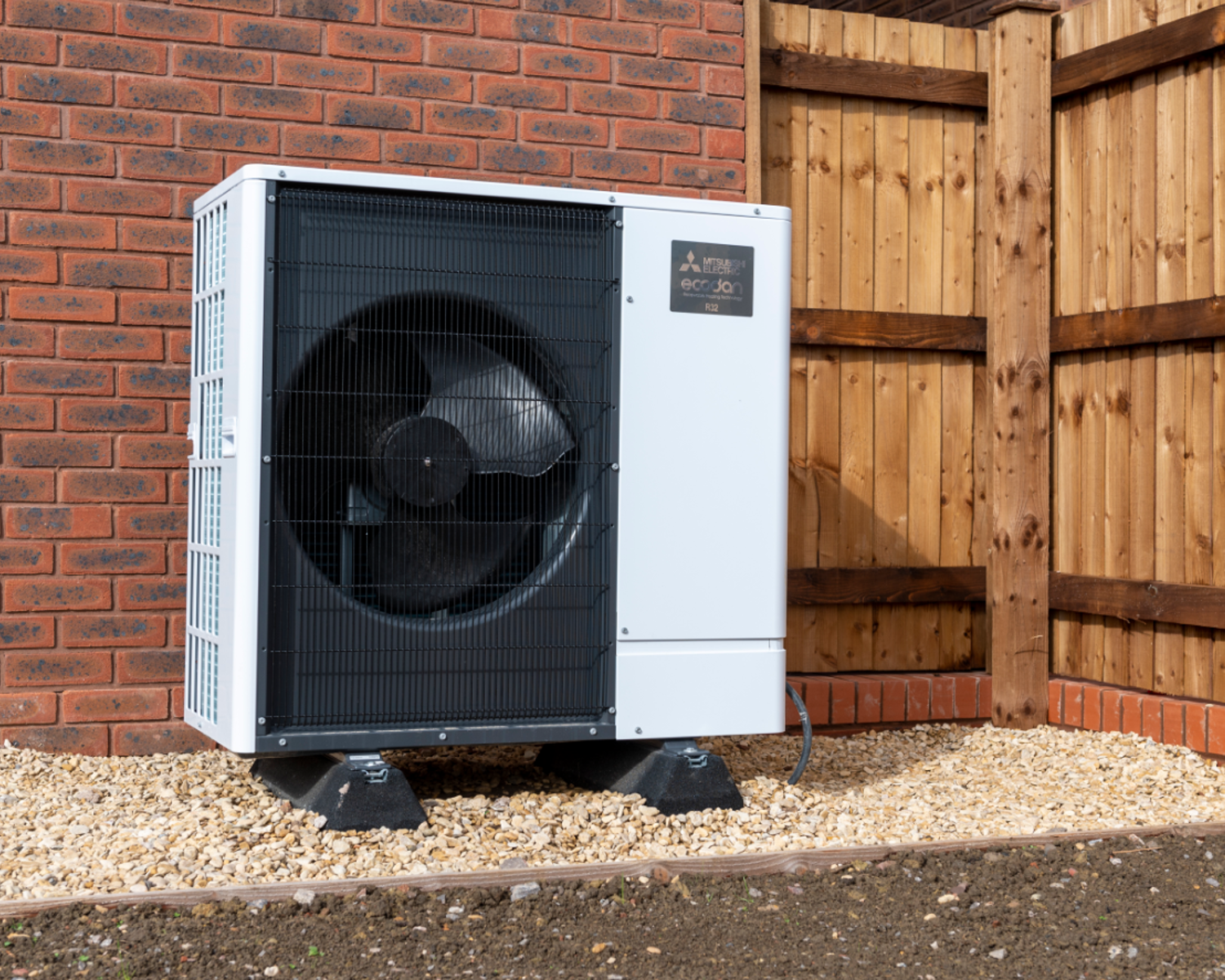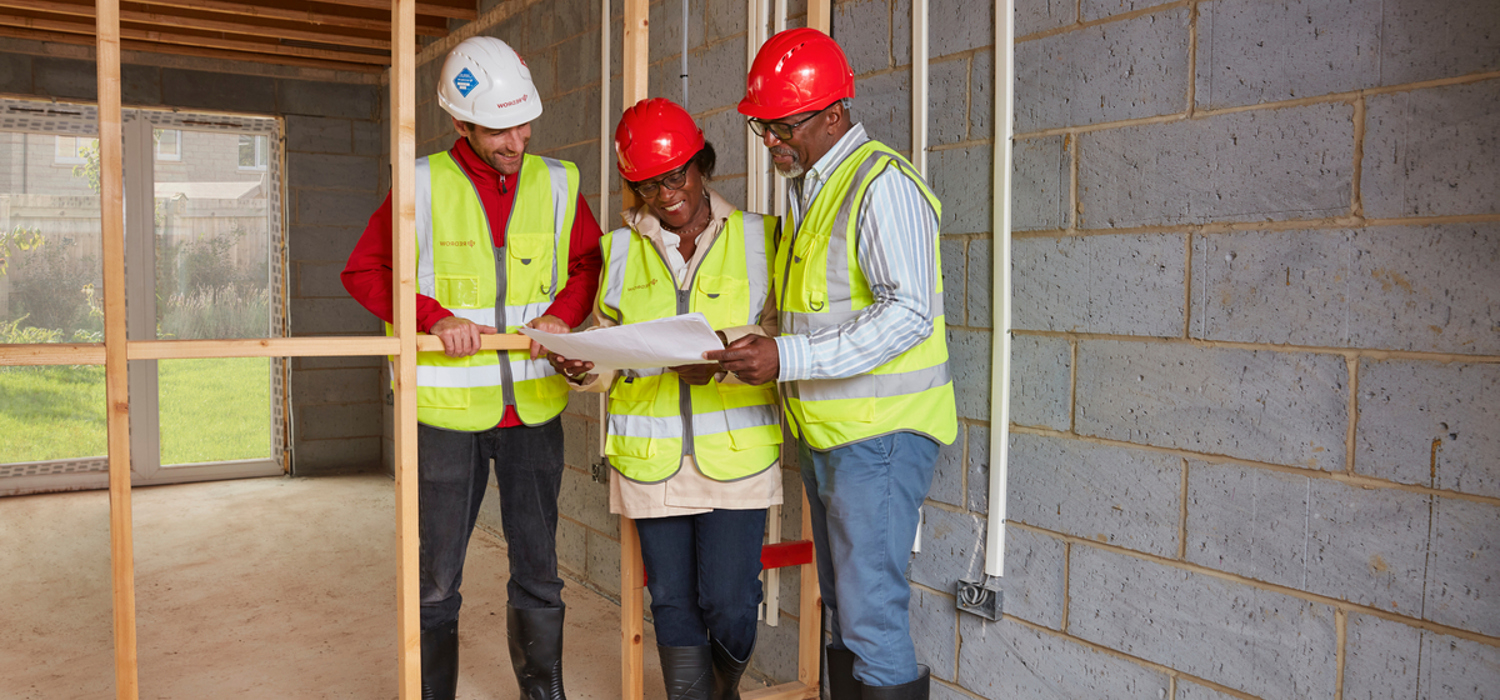Resource efficiency and climate change
Transition to a low carbon and more efficient business and deliver zero carbon ready homes
Reducing our impact on the environment meets legal requirements, contributes to the wider need to achieve net zero carbon and maintains our standing with stakeholders.
Targets
Our commitment is to achieve net zero greenhouse gas (GHG) emissions no later than 2050. Working with the Carbon Trust, we have set near-term targets against a 2021 baseline. These have been validated by the Science Based Targets initiative.
We have set our target to achieve net zero carbon by 2045, building on our previous commitment to achieve net zero carbon before 2050. This target has been submitted to the Science Based Target initiative for verification and will sit alongside our approved carbon reduction targets for 2030.
Our approved near-term science-based targets.
-
Reduce absolute scope 1 and scope 2 emissions 42% by FY2030 from a baseline year FY2021.
-
Reduce absolute scope 3 emissions 25% by FY2030 from a baseline year FY2021.

Carbon data and disclosures
We have been disclosing our carbon emissions and reduction activities to the Carbon Disclosure Project (CDP) annually since 2010. In the most recent submission we were awarded a B grade. Our CDP questionnaire provides more detail on our climate-related risks and opportunities and how these are managed within the business.
We report climate-related disclosures following the TCFD’s recommendations and have structured our responses around the four key thematic areas. Our TCFD report examines a range of possible climate scenarios and the impact of each on Redrow’s business. Our long-term strategy embeds these impacts into governance and processes to ensure a strategic response and practical implementation to prepare the business for a changing world.
Our carbon data is independently verified by external auditors. Copies of the latest assurance statements are available below:

Carbon reduction initiatives
We have developed a suite of initiatives that are designed to reduce our carbon emissions, and are already working on delivering many of these across our business and with our partners. However, we also continuously review new technologies or processes that will help further, both with our Scope 1 and 2 target and our Scope 3 target.
Low carbon homes
We have undertaken Life Cycle Analysis to understand the carbon footprint of our homes, resulting in better visibility of how to reduce the carbon footprint of each home we build.
Ahead of the government’s proposals to decarbonise new-build homes from 2025 (part of the Future Homes Standard), we were the first large homebuilder to incorporate ASHPs and underfloor heating as standard in Redrow houses.

Promoting supply chain sustainability
We are partners in the Supply Chain Sustainability School, which is an award-winning initiative providing free learning and development to help our supply chain partners address sustainability issues. The School offers free practical support to all Redrow suppliers and subcontractors in the form of e-learning modules, training workshops and self-assessments. Since we became partners with the school, over 4,700 free resources have been accessed by more than 300 Redrow suppliers. We encourage our supply chain to improve their knowledge and understanding of sustainability issues through the School's programmes and also sit on the Homes Leadership Group and Carbon and Waste Special Interest Groups, supporting the development of the School.

Solar PV panels
We offer customers the opportunity to upgrade their homes by adding solar PV panels through MyRedrow, our online sales system. This reduces the customer's reliance on grid electricity and reduces their utility bills. It also improves the home’s EPC rating, which is a score relating to the cost of energy needed to run a particular home, while reducing CO2 emissions. The average EPC rating for our homes is B, but the integration of solar PV can improve this to an A rating.

Enhancing efficiencies and conserving natural resources
Our programmes to reduce waste, improve water efficiency, and source timber responsibly has helped to not only reduce costs, but also our upstream and downstream impacts on the environment.
Waste management
Our waste strategy has been developed around three key phases of waste reduction in our processes: design, supply chain management and site operations.

Our award winning Reduce the Rubble research project sought to drill-down and identify every component of the waste generated during our build process. The research helped us to better understand the root-causes of waste and identify how it might either be eliminated, reduced or re-used.
Sustainable earthworks project at Daresbury Garden Village
During 2024, we collaborated with Ecofill at our Daresbury Garden Village development in Warrington. Ecofill's groundbreaking technology was used to transform on-site clays and subsoils into aggregate replacement products, meeting all National and European specifications for Highways and Earthworks. This innovative approach significantly reduces the export of soils to landfill and the import of aggregates, thereby drastically cutting lorry movements, carbon emissions, and construction costs. By leveraging Ecofill's technology, we were able to divert approximately 18,559 tonnes from landfill, saving 21,343 tonnes of imported aggregate, reducing 4,158 lorry movements, and eliminating 147 tonnes of carbon emissions.
Chris Hayton, Technical Project Manager at Redrow North West, expressed enthusiasm for integrating Ecofill's innovative technology into the project. "Ecofill's solution aligns perfectly with our sustainability goals for Daresbury Garden Village," said Hayton. "Their expertise in transforming on-site materials not only enhances the environmental sustainability of our construction but also demonstrates our dedication to innovation and cutting-edge technology."
Community wood recycling
We work in partnership with the Community Wood Recycling Schemes to recycle and recover waste timber from our sites. The Community Wood Recycling Scheme is a national network which provides a collection service for excess wood, with the aim of saving resources by reusing and recycling waste timber. The Scheme also operates as a social enterprise, creating opportunities for local people.
Timber
Our Sustainable Timber Procurement Policy commits us and our supply chain to only source certified timber from sustainably managed forests, through Forest Stewardship Council (FSC) and The Programme for the Endorsement of Forest Certification (PEFC) schemes. Operations managed to FSC standards protect the trees, habitats, biodiversity and the local people from corruptive dealership and landownership.


In 2023 we had evidence to confirm that 99.92% of our timber is sourced from FSC or PEFC sources.
We also submit to the CDP Forests Programme to maintain transparency in our reporting and support our aim of becoming an industry leader in this field. In the 2022 submission, we were awarded a B- grade and we’re now reviewing the assessment, to see where we can improve even more.
Water
Although water isn’t currently rated as a significant material issue for the majority of Redrow stakeholders, each year risks associated with water availability and quality become more acute. These range from pressures on water conservation and neutrality, to business continuity risks posed by supply interruptions and reputational issues arising from rising home water bills. Extreme heat and lower rainfall in the summer will result in further impacts on water stressed areas.
-
Sustainable urban drainage systems (SUDS)
We also incorporate Sustainable Urban Drainage schemes (SUDS) on the majority of our developments to improve rainwater management and reduce flood risk. SUDS Systems are designed to mimic the natural drainage of surface water by managing rainfall, whilst also often providing habitats for wildlife.
-
Water use in our operations
In our operations, we look to reduce water use wherever possible from more water efficient site cabins to using recycled water for wheel washes. Our total water use has reduced in the last 12 months.
-
Water use in our homes
Our homes are industry-leading in terms of water efficiency, with a rating of just 105 litres per person per day, well below the Building Regulations requirement of 125 l/p/d. We achieve this with highly efficient fixtures, water saving baths and flow restrictors.
-
Water neutrality
Achieving water neutrality is an important consideration in areas of high water stress. We are exploring ways to improve our water efficiency further through research and partnership to contribute to the goal of water neutrality. For example, we’ve joined multi-stakeholder forums to collaborate on water efficiency and water neutrality solutions including collaborating with the industry through the Future Homes Hub.
-
Nutrient neutrality
We’re committed to playing our part in tackling high nitrate and phosphate content in rivers and coastal water. At our developments in sensitive river catchment areas, we’ve been working hard to find innovative solutions, such as replacing low-value agricultural land with biodiverse green infrastructure, creating wetlands and building on-development wastewater treatment works.


 HVO fuel
HVO fuel Renewable electricity
Renewable electricity Heating and lighting
Heating and lighting PV panels
PV panels Diesel emissions reduction
Diesel emissions reduction Fuel efficiency
Fuel efficiency Solar generators
Solar generators Implement Future Homes Standard (FHS) 2025
Implement Future Homes Standard (FHS) 2025 Support our supply chain with setting own NZC targets
Support our supply chain with setting own NZC targets Establish an EPD database for our key carbon contributors
Establish an EPD database for our key carbon contributors Carbon related causes within commercial contracts
Carbon related causes within commercial contracts Engage with industry product associations
Engage with industry product associations Improve data accuracy
Improve data accuracy Collaborate with Supply Chain Sustainability School & Future Homes Hub
Collaborate with Supply Chain Sustainability School & Future Homes Hub


